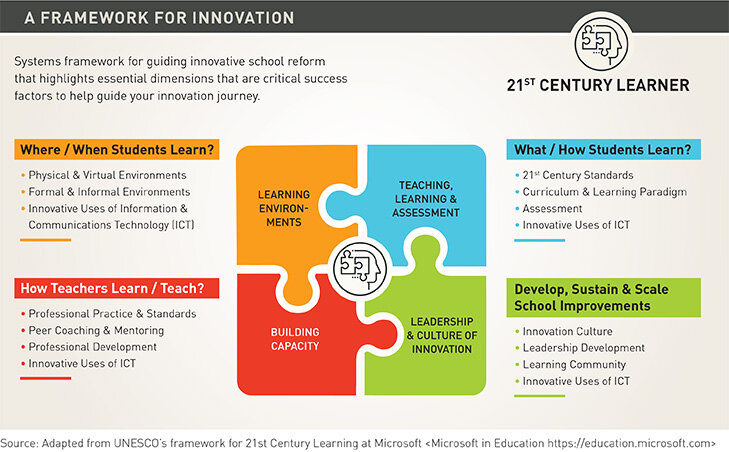Is the future of learning going to be at our fingertips?
One of the many things that the COVID pandemic has taught us is that the future is unpredictable, which also applies to education. We might not know exactly what the future of education looks like, but we can be assured that it will not remain the same as it has been in the past decade. We have seen traditional classrooms transformed into online Zoom sessions, textbooks turned into presentations, and fixed learning schedules blended with daily routines.
The future of education where hybrid learning is the norm no longer sounds like a far-fetched macro topic discussed by only authorities and educational institutions. It is the new reality for all.
A technology-driven outlook
Ten years ago, students were most familiar with conventional learning tools: blackboards, chalks, books, and pens. Confined within the physical space of a classroom, students gained knowledge primarily from teachers and participated in standardized tests.
However, education has evolved to overcome the adversities of primitive teaching methodologies. Driven by technology, the new era of education has acquired the capability to impart knowledge in a more efficient and personalized manner through online and mobile learning. With just a click of the finger, learners are globally interconnected and able to consume knowledge anywhere, anytime. A learner from South Africa can now access online courses from top educators in other continents on a mobile device without having to leave the comfort of their room. The pervasiveness of the internet has enabled us to choose the topics and set the pace we want to learn. That brings the future of education and learning to our very own hands.
Everyone contributes to the change
We may think that all of these changes to modern education will be made by someone else, be it the government or pedagogical services. These changes are, nonetheless, the result of everyone’s contribution synergy.
The ongoing pandemic situation has called for hybrid or blended learning, where learning has become more personalized and non-linear. Students have more freedom to learn new things independent of their formal academic curriculum. Students’ well-being and different assessment methods are also being taken into practice. According to OECD, decision-making, and responsibilities in the “new normal” of education no longer lie with just a few selected people but are shared among a wider group of stakeholders. It involves learners, teachers, public sectors as well as private entities.
As the majority of routined processes are now handled by machines, work will be structured around projects instead, leading to a new trend in learning, known as “Active” or “Problem-based” learning. This learning method presents students with a problem to solve, rather than mere theories to memorize. Hence, the presence of teachers is shifted from the “sole knowledge keeper” to “meddler in the middle”. These “meddlers” will learn alongside students, challenging them to expand their horizons, as stated by Educationalist Erica McWilliam.
However, transforming education will be expensive. Better facilities and an addition of 26 million teachers will be needed to meet the UN’s Sustainable Development Goal on education. That is why authorities and educational institutions alone cannot bring about the change. Support is needed from both the public and private sectors to implement scalable impacts. More specifically, the future of education requires funding support from authorities and governments, while at the same time seeking platforms that can amplify education’s reach to a global audience. Mobile learning service providers such as Funzi are part of the solution to mitigate the financial pressure and help education truly become accessible worldwide.
How to embrace the future of learning?
Many jobs that did not exist ten years ago have now become mainstream. How do we prepare ourselves for an unpredictable future?
The key to adapt to global changes is to obtain transferable skills that withstand time. They are known as 21st-century skills, which prepare and empower learners to increase their versatility and employability in a fast-changing environment.
UNESCO’s framework for 21st-century skills strongly suggests a competency-based approach to learning and teaching.
One of the fundamental future skills is empathy. During Funzi’s Mobile talks event “The fundamental skills needed in the future of work”, Professor of Futures studies Markku Wilenius stated that “Empathy is a great tool for learning”. In the future, one’s credentials will shift to endorsements and recommendations from peers and mentors. Communication skills and empathy will matter. “You can never stop learning unless you stop listening,” he added.
Along with critical thinking, problem-solving, attention to detail, communication, and teamwork, transferable soft skills like empathy are likely to become one of the focuses of futuristic educational institutions.
Find out how Funzi can help people prepare for the future and have these transferable skills at their fingertips by exploring the various courses available on www.funzi.mobi.



